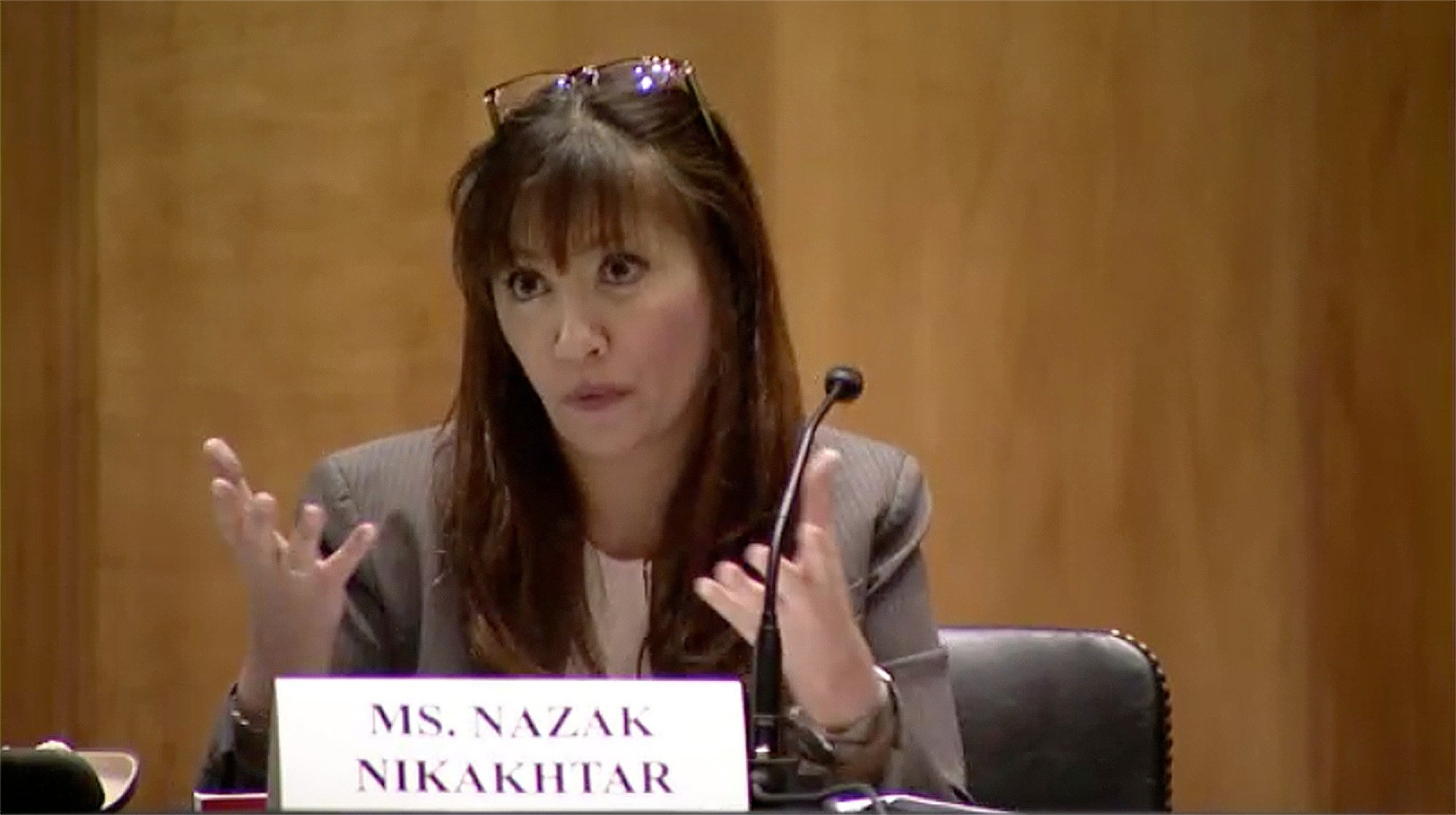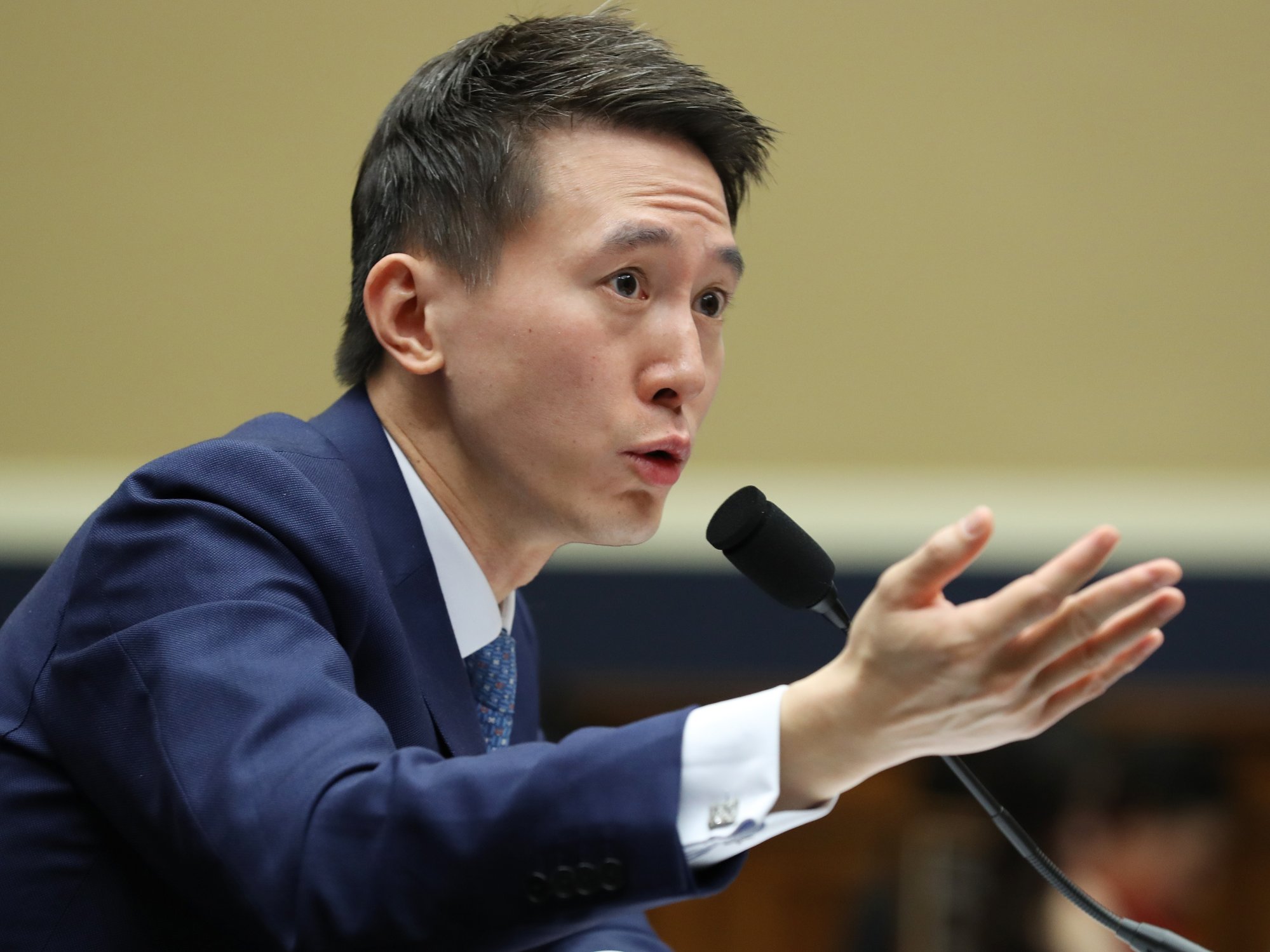The US will need to pay tens of billions of dollars more to expand its ban on the use of Chinese IT equipment to reduce national security risks, analysts said on Thursday.
“There are often few alternatives to designated Chinese [information and communications technology and services] available at comparable prices,” Jack Corrigan, senior research analyst at Centre for Security and Emerging Technology of Georgetown University, told the US-China Economic and Security Review Commission (USCC) in Washington.
The commission is a US advisory panel on China policy, focused on national security implications of trade and economic ties between the two countries.
Do you have questions about the biggest topics and trends from around the world? Get the answers with SCMP Knowledge, our new platform of curated content with explainers, FAQs, analyses and infographics brought to you by our award-winning team.
“Eliminating all designated Chinese [technology and services] from every US network would be prohibitively expensive, if not impossible,” Corrigan testified.
Washington has already rid the country of telecoms infrastructure made by China’s Huawei Technologies and ZTE, alleging that those systems might contain spyware to transfer personal US data to Beijing.
To compensate local telecoms providers, the Federal Communications Commission launched a “rip and replace” initiative that Congress financed with a US$1.9 billion fund in 2020. But it has turned out the replacement costs have been far more: the programme faces a roughly US$3.1 billion shortfall, the agency has said.
Should the programme expand to cover Chinese hardware providers beyond Huawei and ZTE, that funding gap will only grow, Corrigan said.
“As such, it is crucial that policymakers target procurement bans and ‘rip and replace’ funding at the sectors, networks and use cases where breaches present the greatest risks to national security,” he said.
Nazak Nikakhtar, a former Commerce Department official during the Donald Trump administration, contended that the US was “stalling rather than dotting the i’s crossing the t’s” when it came to an outright ban on Chinese hardware and software.
She cited the case of TikTok, the Chinese short-video platform, and its owner ByteDance. “Everybody’s really keen on yelling about TikTok. But we don’t even use the litigation-proof legal authority that we have to put ByteDance on the entity list, which will then atrophy the app over time,” Nikakhtar argued.
She said that the only way to mitigate the economic costs would be to designate entire sectors that could not use Chinese components, and “phase it in over time so the economy adjusts”.
US instructs carriers on programme to remove Huawei and ZTE equipment
“The legal authorities exist, that capability exists, but across the board from industry to government, the will does not exist,” she said.
Another witness, Ivan Tsarynny, chief executive of Feroot Security, a data protection intelligence software company, said that TikTok collects a huge amount of US-based user data with tracking pixel – code websites use to track digital ad campaigns.
Tsarynny noted that TikTok is governed by China’s cybersecurity law, which requires all Chinese companies to share data with China’s authorities, which are under Communist Party control. Thus he said, “data collected by TikTok, and other companies from China, can be shared with the actors in China”.

During his congressional testimony last March, TikTok’s chief executive Shou Zi Chew said that the US data gathered on the platform “has always been stored in Virginia and Singapore”.
But weeks later, an investigation by Forbes magazine found that the company had stored the financial information of its US creators on servers in China.
“[It] seems to me like perjury – sounds like perjury, it smells like perjury,” USCC commissioner Jacob Helberg said during the hearing on Thursday.

Liu Pengyu, a spokesperson for China’s embassy in Washington, said those making the remarks “overstretch the concept of national security to suppress Chinese companies, using trade and technology as weapons and instruments to undermine economic cooperation between the two countries”.
“We are firmly against such statements. Protectionism only disrupts trade flows and destabilises industrial and supply chains, serving no one’s interest,” Liu said.
“The US side should earnestly respect market economic principles and norms of international trade, provide a fair, just and non-discriminatory environment for Chinese companies.”
TikTok has not yet responded to a request for comment.
More from South China Morning Post:
- US Congress considers new legislation to further restrict investment in Chinese tech sectors
- US deems more Chinese tech companies ‘military’ and a national security risk
- US lawmaker moves bill to ban Chinese biotech firms from federal contracts, alleging complicity with military
- US investors should be told of China exposure risks, says congressional advisory panel
For the latest news from the South China Morning Post download our mobile app. Copyright 2024.





